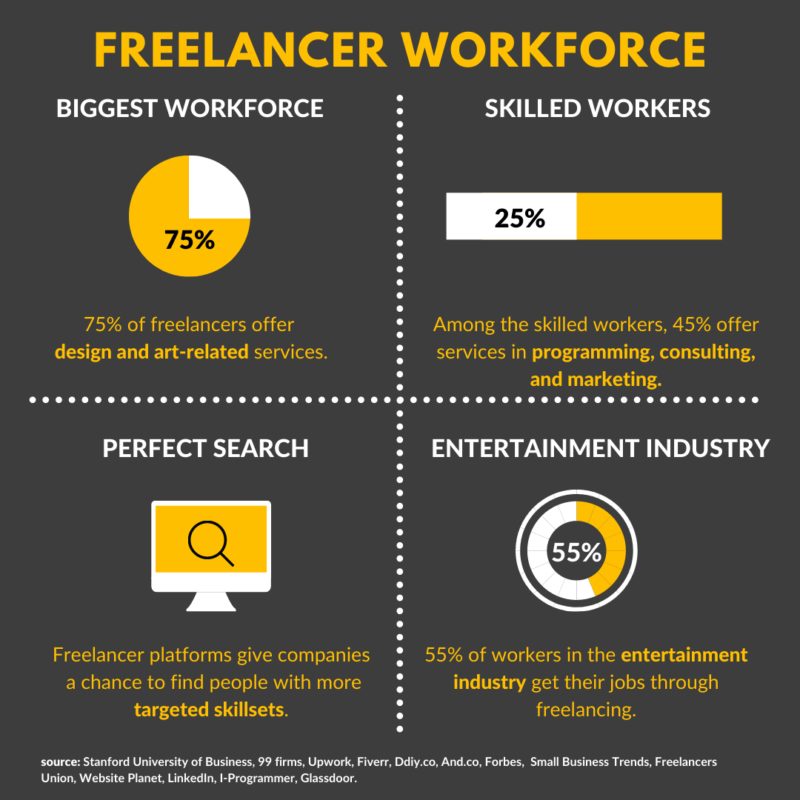Breaking Into Freelancing: A Step-By-Step Guide

Are you tired of the daily grind, office politics, and the never-ending commute? Have you ever dreamt of working on your terms, choosing your projects, and setting your schedule? If the answer is yes, it might be time to consider breaking into the world of freelancing.
Freelancing is a popular career choice, offering the flexibility and freedom to work on your terms. But breaking into freelancing can be tough, especially if you're starting out. According to Firmbee:
📊 Freelancers make up 35% of the global workforce.
🏡 25% of freelancers prefer working from home, improving performance by 13%.
💼 The highest paying freelancers are in software development and coding, earning up to $1,000 per hour.

Transitioning from a traditional job to the world of freelancing opens doors to exciting possibilities and unparalleled flexibility. Whether you aspire to be your own boss, gain control over your schedule, or explore diverse projects, this step-by-step guide will serve as your compass on this transformative journey:
1. Choose a niche
Choosing a niche is one of the best ways to set yourself up for freelancing success. This will help you focus your marketing efforts and attract clients seeking your skills and expertise.
According to a study by Upwork, freelancers who specialise in a particular niche earn more money than those who don't. The study found that the average hourly rate for freelancers with a niche is $23, while the average hourly rate for freelancers without a niche is $17.
2. Build a portfolio
Once you've chosen a niche, you need to build a portfolio of work to showcase your skills and experience. This could include samples of your writing, design work, or code.
According to a survey by Freelancer.com, 92% of clients say that a portfolio is the most critical factor when choosing a freelancer.
3. Create a website
A website is a great way to showcase your portfolio, promote your services, and contact potential clients.
According to a study by Clutch, 72% of clients say they're more likely to hire a freelancer with a website.
4. Network with other freelancers and businesses
Networking is a great way to meet potential clients and learn about new opportunities. Attend industry events, join online communities, and contact other freelancers in your niche.
According to a study by LinkedIn, 85% of professionals say networking is important to their career success.
5. Promote yourself on social media
Social media is a great way to promote your services and connect with potential clients. Share your work, blog posts, and other relevant content.
According to a study by Hootsuite, 83% of businesses use social media to find and hire freelancers.
6. Start with smaller projects
When you're just starting out, starting with smaller projects is helpful. This will help you to build a track record of success and get testimonials from satisfied clients.
According to a survey by Upwork, 75% of freelancers say they started by working on small projects.
Breaking into freelancing takes time and effort. Don't get discouraged if you don't land your dream client immediately. Keep networking, promoting yourself, and producing high-quality work.
Frequently asked questions
No, some industries like health care and manufacturing require physical presence. But many fields, especially in tech and marketing, are well-suited for remote work.
Not necessarily. Many remote jobs offer competitive salaries and benefits.
There are various job boards dedicated to remote work, such as We Work Remotely and Remote OK.
The key is to set a routine, create a dedicated workspace, and use productivity tools to stay on track.
Tools like Slack, Zoom, and Asana are invaluable for remote work, aiding in communication and project management.




